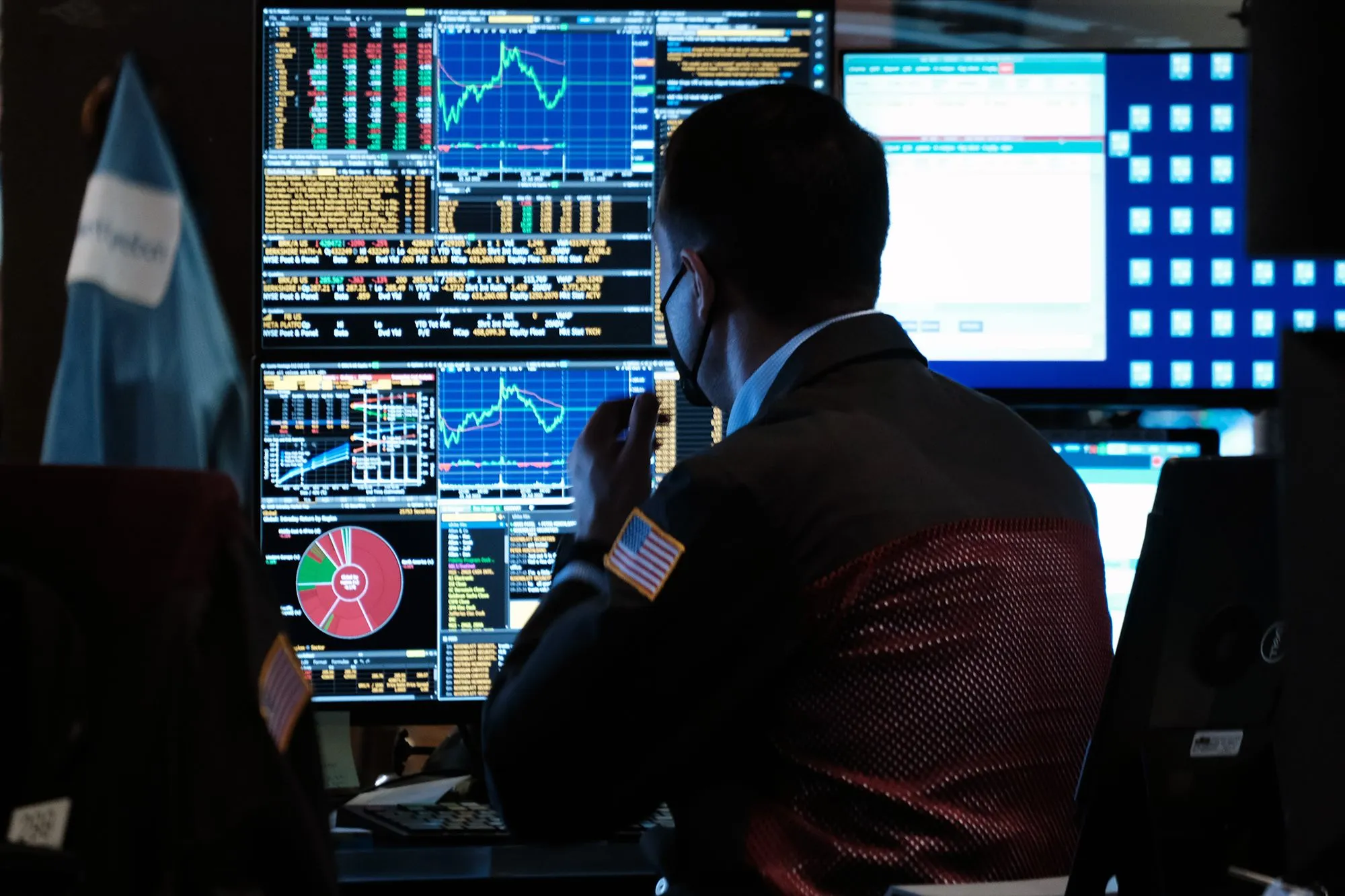Amidst the aftermath of the market's most significant downturn since February, equity traders are poised to navigate a series of pivotal events in the forthcoming days. While a closely monitored speech by Federal Reserve Chair Jerome Powell at a symposium in Wyoming on Friday remains noteworthy, it may not hold the paramount position in this sequence of events.
Anticipating Powell's address, market participants are directing their attention towards a critical earnings report from Nvidia Corp. scheduled for Wednesday. This report is expected to set the tone for the market. Nvidia, now the fourth-largest constituent of the S&P 500 Index, had ignited the surge in artificial intelligence-related stocks earlier this year, contributing to the benchmark's approximately 14% ascent.
The week culminates with Powell's speech. Traditionally, a Federal Reserve chair's address at this symposium has provided support to equity markets, as evidenced by an average S&P 500 gain of 0.4% in the subsequent week, according to Bloomberg Intelligence data. However, last year's occurrence remains fresh in traders' memories, as stocks experienced a 3.2% decline in the week following Powell's remarks, after he issued a cautionary note about maintaining a restrictive policy stance to counter inflation.
The potential risk at present is that Powell might emphasize the prospect of additional tightening measures this year, potentially dampening growth expectations at a time when concerns surrounding China's situation are escalating. Such a scenario could also undermine profit projections on Wall Street, particularly for technology-focused stocks that have exhibited remarkable growth.
Stephanie Lang, Chief Investment Officer at Homrich Berg, notes, "Investors are banking on a narrative of inflation being managed and the Fed achieving success, but this has yet to materialize — and that presents the most significant risk to the stock market." Simultaneously, she highlights the importance of Nvidia's ability to translate the potential of AI into tangible earnings growth for the continuation of the current market rally.
However, in the broader scheme of things, the trajectory of the Federal Reserve's actions holds paramount importance, particularly with three policy-setting meetings remaining in 2023. Within the interest-rate market, there is a leaning towards a pause in the next month, and traders have factored in less than a 50% probability of a quarter-point increase in the subsequent decision set for November.
While July's report on consumer prices indicated subdued inflation, robust data on retail sales underscored the resilience of U.S. consumers. This could potentially push the Federal Reserve to pursue more assertive policy actions if inflationary pressures persist.
As the sell-off in U.S. stocks gained momentum last week, with the S&P 500 recording its first three-week decline since February, there has been a surge in demand for options contracts betting on further losses. Over 25 million put options were traded on U.S. exchanges on a single day, the highest volume since the turbulence in March, while demand for call options remained relatively average. This trend intensified further as contracts tied to stocks and indexes reached their expiration.
Rocky Fishman, Founder of Asym 500, a derivatives analytics firm, notes that the elevated put volume is reflective of the market's descent into a lower spot range. Additionally, the proximity to the monthly expiration contributed to this heightened activity.
With the S&P 500 experiencing a 4.8% decline in August, on track for the worst monthly performance this year, and the Cboe VIX Index — a gauge of expected volatility — approaching levels seen in May, derivatives traders are taking note. The data reveals a decline in call buying to initiate positions, indicative of reduced bullish sentiment, relative to put buying, as analyzed by Citigroup Inc. This shift is also apparent in a broader measure encompassing both call and put selling as indicators of bullish and bearish bets.
Amidst this positioning, the spotlight on the Federal Reserve symposium becomes even more pronounced. The circumstances leading into the event are characterized as "complex" by Dennis Debusschere, President of 22V Research LLC. Rising Treasury yields are impacting equities with longer durations, and the ongoing battle against inflation continues. Debusschere anticipates Powell will not adopt an approach as assertive as he did in 2022, noting that Powell's tone will likely emphasize data-dependency, which might not appear as hawkish against the backdrop of rising yields and underperforming risk assets.

Subscribe to our newsletter!
As a leading independent research provider, TradeAlgo keeps you connected from anywhere.








